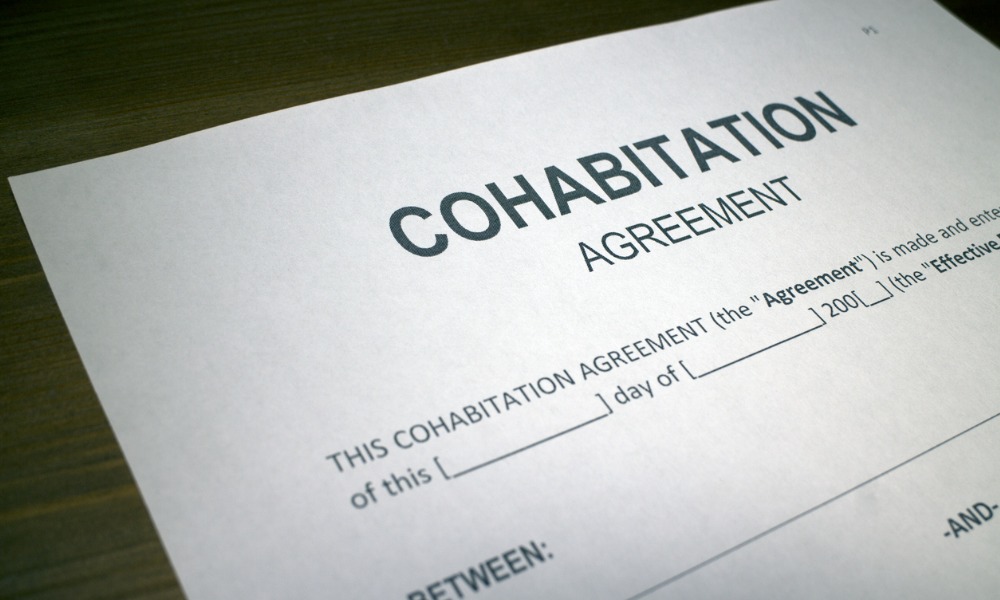
Living together without being married is becoming increasingly common, but it can lead to legal and financial uncertainties if the relationship ends. In Washington State, cohabitation agreements offer unmarried couples a way to clarify their rights and responsibilities, ensuring both parties are protected. These agreements can address everything from property division to financial obligations.
Understanding how cohabitation agreements work is essential for couples who want to safeguard their future. By outlining expectations upfront, these legal documents help prevent disputes and provide peace of mind. Whether you’re moving in with a partner or have been living together for years, knowing your rights under Washington State law is a smart step toward protecting your interests.
What Are Cohabitation Agreements and Why Are They Important?
Cohabitation agreements define the legal and financial arrangements between unmarried couples living together. In Washington State, these agreements outline rights, obligations, and protections related to shared property, finances, and assets. Unlike marriage, cohabitation laws don’t automatically apply, leaving couples without formal protection in case of separation.
These agreements prevent disputes by addressing potential issues upfront. For example, they specify how jointly acquired property, such as real estate or savings, will be divided or how debts will be managed if the relationship ends. They also clarify contributions toward shared expenses such as rent or mortgage payments.
For unmarried individuals, a cohabitation agreement ensures financial security and avoids legal uncertainty. Washington State couples can benefit from seeking professional legal counsel, such as Hodgson Law Office, to create well-drafted agreements suited to their circumstances.
Legal Protections for Unmarried Couples Sharing Assets
In Washington State, unmarried couples lack automatic legal protections when their relationships end, unlike married individuals. Cohabitation agreements address this gap by providing a formal structure for asset division and financial obligations.
- Asset Ownership: These agreements define ownership of shared and separately held assets. For example, jointly purchased property or individual savings accounts are categorized clearly, reducing disputes during a separation.
- Debt Responsibility: Couples outline who is responsible for specific debts, such as credit cards or loans, incurred individually or together. This ensures one partner isn’t unfairly burdened if the relationship ends.
- Property Division: A cohabitation agreement specifies how shared assets, including real estate or vehicles, are divided upon separation. This is especially vital if both names appear on titles or deeds.
- Financial Contributions: Partners document obligations for shared expenses, such as rent or utilities. Clarifying financial contributions prevents misunderstandings and helps balance responsibilities during cohabitation.
Unmarried couples in Washington State often consult legal professionals, like those at Hodgson Law Office, to create tailored cohabitation agreements. These personalized agreements ensure both parties’ interests are secured under state laws.

Key Elements to Include in a Cohabitation Agreement
- Property Ownership
Specify ownership of assets acquired before and during the relationship. Distinguish between jointly owned and individually held property to avoid disputes later. - Financial Contributions
Document each partner’s financial contributions to shared expenses, such as housing, utilities, and other costs. Clarifying these contributions helps ensure fairness. - Debt Responsibility
Outline responsibility for existing and future debts. Indicate whether debts are individual or shared and establish repayment obligations. - Separation Terms
Define the division of jointly owned property and assets if the relationship ends. Address procedures for resolving disputes and specify any support obligations. - Living Arrangements
Include details about housing, such as ownership or leasing agreements, and plans for handling the property in case of separation. - Dispute Resolution
Agree on methods for resolving conflicts, such as mediation or arbitration. This minimizes legal costs and facilitates equitable outcomes. - Personal Property
List valuable items, such as vehicles or collectibles, and state who retains ownership. This avoids confusion over individual belongings. - Document Updates
Incorporate a clause for revisiting and updating the agreement to reflect significant changes, like acquiring property or changes in income.
Couples in Washington State can work with legal professionals, such as those at Hodgson Law Office, to draft comprehensive cohabitation agreements tailored to their needs and state regulations.
How These Agreements Provide Financial Clarity
Cohabitation agreements outline financial expectations between unmarried couples, reducing ambiguity and potential disputes. By detailing how shared expenses, property, and assets are managed, these agreements help couples plan for fair contributions during the relationship and define asset division in case of separation.
They specify ownership of joint and individual assets, ensuring there are no misunderstandings. This clarity is particularly important in Washington State, as cohabitation laws don’t provide automatic protections. For instance, the agreement can allocate contributions to shared expenses like rent, utilities, and major purchases, preventing one partner from shouldering an unequal financial burden.
Debt responsibilities are also addressed, protecting both parties from unexpected liabilities. By defining which debts are jointly or individually owned, cohabitation agreements shield parties from financial disputes if the relationship ends. This clarity is essential when dealing with mortgages, credit card balances, or loans obtained during the relationship.
Including provisions in cohabitation agreements specific to Washington State regulations can ensure the agreement reflects applicable laws. Legal professionals, such as those at Hodgson Law Office, can provide tailored assistance. Explicitly addressing financial matters allows couples to feel secure in their arrangements and focus on building their partnership without uncertainty.
Addressing Property Division and Financial Responsibilities
Cohabitation agreement washington state define how property and finances are managed during the relationship and divided upon separation. These agreements clarify ownership of assets acquired before and during the relationship, distinguishing individual property from jointly owned property. For example, one party can retain sole ownership of a home purchased before cohabitation, while both may share ownership of furniture bought together.
Couples use cohabitation agreements to prevent disputes by specifying how shared finances are divided. This includes contributions to joint accounts, dividing shared expenses, and managing individual debts. For instance, the agreement can state how each partner contributes to rent or mortgage payments and utility bills, ensuring transparency in shared financial responsibilities.
These agreements also address liabilities by outlining which debts belong to whom, avoiding confusion if the couple separates. For jointly incurred debt, like car loans or shared credit cards, the agreement specifies repayment terms, safeguarding both parties. In Washington State, where cohabitation laws don’t provide automatic protections, these agreements become crucial for financial security.
Working with professionals, such as those at Hodgson Law Office, helps couples draft detailed agreements suited to their circumstances. Legal guidance ensures that the document complies with state laws and protects both parties’ rights, particularly when dealing with significant assets or debts. By addressing property and financial responsibilities clearly, cohabitation agreements support equitable outcomes, regardless of the couple’s relationship status.
Working with Legal Professionals for Customized Agreements
Cohabitation agreements offer unmarried couples in Washington State a reliable way to protect their rights, assets, and financial interests. By addressing potential issues upfront, these agreements reduce uncertainty and safeguard both parties in case of separation.
Partnering with experienced legal professionals ensures that the agreement is tailored to the couple’s unique circumstances and complies with state laws. This proactive step not only provides clarity but also fosters a stronger foundation for the relationship.
